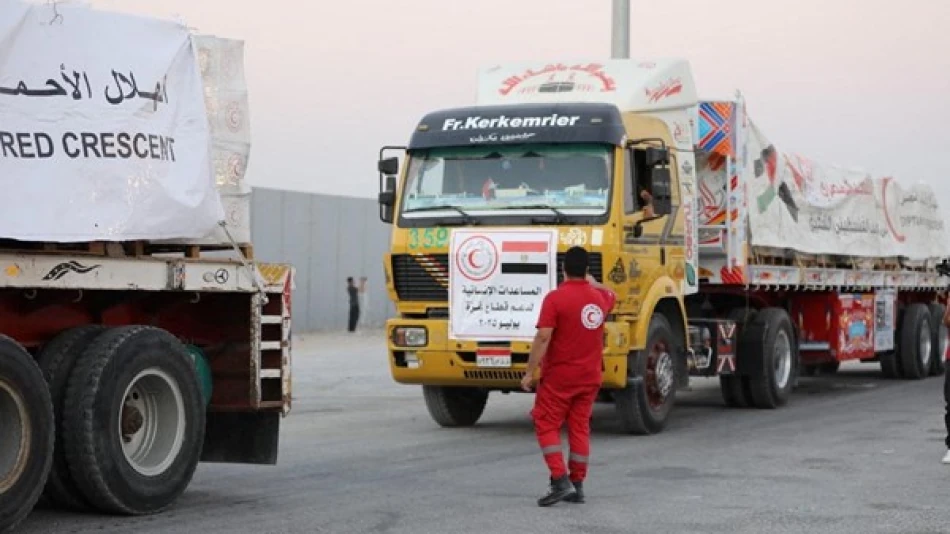
UN Rushes to Provide Urgent Food Aid to Gaza's Hungry Populations
UN Mobilizes Emergency Food Aid as Gaza Faces Imminent Famine Crisis
The United Nations announced Sunday it will dramatically scale up food distribution efforts in Gaza following the establishment of safe humanitarian corridors, as international agencies warn that one-third of the territory's 2.4 million residents haven't eaten for days and 470,000 people face famine-like conditions that are already proving fatal.
Critical Food Reserves Provide Three-Month Window
The World Food Programme (WFP) revealed it has sufficient food supplies either in Gaza or en route to feed the entire population for approximately three months. However, the agency emphasized that safe passage corridors and temporary ceasefires are essential to deliver these life-saving resources to those most in need.
Tom Fletcher, the UN's humanitarian affairs coordinator, confirmed via social media that teams are coordinating with ground personnel to "reach as many starving people as possible." The urgency reflects a deteriorating situation where food aid has become the sole means of survival for much of Gaza's population.
Massive Logistical Challenge Ahead
The scale of the humanitarian operation is staggering. The WFP estimates it needs to deliver more than 62,000 tons of food assistance monthly to adequately feed Gaza's entire population. This represents one of the largest emergency food operations in recent memory, comparable to major famine response efforts in Somalia and Yemen.
The logistical complexity is compounded by security concerns and infrastructure damage. Unlike previous humanitarian crises where aid could flow through multiple border crossings and established supply chains, Gaza's unique geographic constraints create bottlenecks that international agencies are now racing to overcome.
International Officials Sound Alarm on Deteriorating Conditions
Senior UN officials issued increasingly stark warnings about the humanitarian catastrophe unfolding in Gaza. Volker Türk, the UN High Commissioner for Human Rights, described scenes of children starving and dying, calling Gaza "a wretched scene of deadly attacks and comprehensive destruction."
Filippo Grandi, the UN High Commissioner for Refugees, declared that "the starvation of Gaza's population must end now," emphasizing that hundreds of thousands face imminent death without immediate intervention.
Health Crisis Compounds Food Emergency
The UN Office for the Coordination of Humanitarian Affairs (OCHA) warned Friday that malnutrition is creating conditions ripe for disease outbreaks, which could quickly become "deadly" given the compromised health infrastructure. This dual threat of starvation and disease mirrors patterns seen in other conflict zones where humanitarian access has been severely restricted.
Broader Implications for Humanitarian Operations
The Gaza food crisis tests international humanitarian frameworks in ways not seen since major conflicts in Syria and Yemen. The concentration of 2.4 million people in such a small geographic area, combined with the complete breakdown of local food systems, creates unprecedented challenges for aid delivery.
Success or failure in Gaza could influence how the international community responds to future humanitarian emergencies, particularly in densely populated conflict zones where civilian populations become entirely dependent on external aid for survival.
UN teams remain positioned to rapidly expand aid operations once security conditions permit, but the three-month food supply window creates a critical timeframe for establishing sustainable humanitarian corridors before reserves are exhausted.
Most Viewed News

 Layla Al Mansoori
Layla Al Mansoori






